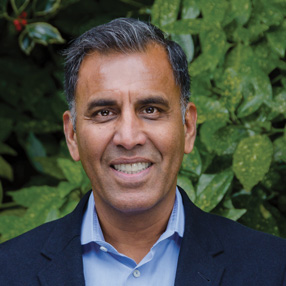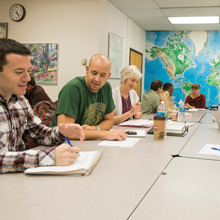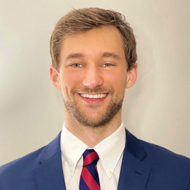2021 Leaders in Graduate Education in International Affairs
THIS GUIDE IS NO LONGER ACTIVE. For the current FP Guide, click here.
George Mason University, Schar School of Policy and Government
Professor Uses Technology, Culture Focus to Incorporate Practical Skills into Classroom

J.P. Singh, Professor of International Commerce and Policy, Schar School of Policy and Government, George Mason University
Professor J.P. Singh believes that economics and international affairs programs do not always incorporate the kind of skill-building that helps foster a long-term career in the field. So, the professor emphasizes a multidisciplinary approach to teaching skills that students can use throughout their careers. The Master’s in International Commerce and Policy program at George Mason University’s Schar School of Policy and Government, where Singh teaches, offers specific hands-on courses in strategic trade, evaluations of development projects, and “the new world of artificial intelligence and fintech.”
Singh’s own work is multidisciplinary. He has advised the World Bank and World Trade Organization on trade and international development, and the British Council and UNESCO on international cultural policies. His book Globalized Arts: The Entertainment Economy and Cultural Identity won the American Political Science Association’s award for best book about information technology and politics in 2012.
The multidisciplinary education in our Master’s in International Commerce and Policy graduate program places the world of finance, trade, and international development against a broad global backdrop, while offering specific hands-on courses in strategic trade, development project evaluation, and the new world of artificial intelligence and fintech.To help train future leaders, Singh integrates technology as a substantive part of the International Commerce and Policy program. One focus is how culture and technology intersect to improve the innovation and competitiveness of businesses and nations. For example, one of Singh’s courses studies how YouTube, Uber, Google, and Airbnb use technology to bolster their offerings in a global service economy.
 Two of the program’s five core courses expose students to broader sociological and cultural issues that affect international commerce. Singh’s goal is to teach students to understand how cultural and political institutions allow for trade to take place. “I am teaching how human beings learn to trust and collaborate with each other in social and economic life.”
Two of the program’s five core courses expose students to broader sociological and cultural issues that affect international commerce. Singh’s goal is to teach students to understand how cultural and political institutions allow for trade to take place. “I am teaching how human beings learn to trust and collaborate with each other in social and economic life.”
“Just as a religion might help us connect with ourselves, I’d say that a career in international affairs helps students connect with the world in which they find themselves,” Singh says.
The cultural focus in the program provides students with an understanding of “the reasons there are people who feel left behind” by the forces of globalism and their “deep-seated anxieties about the world,” Singh says.
Learning How Culture Shapes
Economic Decision-Making
Student Nathan Lotze has had Schar School professors from diverse backgrounds: trade lawyers, economists, and traditional academics. Each offered “a different lens on how to view the forces at play in the global economy,” says Lotze, from Youngstown, Ohio.
||||While most of his courses focus on traditional economic concepts, such as markets and efficiency, Professor Singh’s class stressed the role of culture in the global economy.
||||“From trade policy to technological innovation and adoption, Professor Singh helped me appreciate how culture can shape economic decision-making, even when it conflicts with economic well-being,” Lotze says. “When studying global policy issues, I now make sure to incorporate the cultural qualities of people involved in my analyses.”
George Mason University, Schar School of Policy and Government
https://schar.gmu.edu
[email protected]
703-993-8099![]()
Contents
- 2021 Leaders in Graduate Education in International Affairs
- Tufts University, The Fletcher School
- Northwestern University
- Nova Southeastern University, Master’s Program in National Security Affairs and International Relations
- Johns Hopkins University School of Advanced International Studies
- Columbia University, School of International and Public Affairs
- George Mason University, Schar School of Policy and Government
- University of Kent, Brussels School of International Studies
- Arizona State University, Thunderbird School of Global Management


